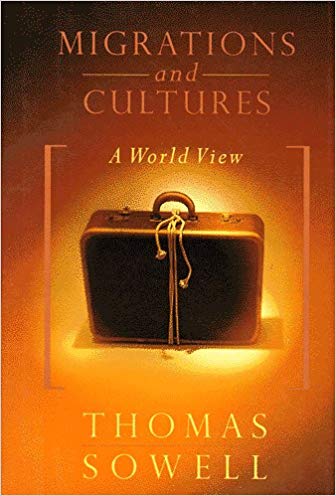A Brief Book Summary from Books At a Glance
By Benjamin Montoya
Editor’s Note:
With this “Bonus” Book Summary continues our series on culture. This series of books by Thomas Sowell has been fascinating, and we hope our members are enjoying these “extra” summaries and the quick learning they afford.
About the Author
Thomas Sowell has taught economics at several colleges and universities, including Cornell, University of California Los Angeles, and Amherst.
Introduction
Migrations of people groups and the culture they bring with them have been something common throughout history. Are there patterns? What lessons can we learn from specific people groups? What implications are there for today? Consider Sowell’s insightful book to learn more.
Table of Contents
Chapter 1 Migration Patterns
Chapter 2 Germans around the World
Chapter 3 Japanese around the World
Chapter 4 Italians around the World
Chapter 5 The Overseas Chinese
Chapter 6 Jews of the Diaspora
Chapter 7 The Overseas Indians
Chapter 8 History and Cultures
Chapter 1: Migration Patterns
Given just how much migration has happened throughout known history, one might be tempted to think the matter is simple, i.e., that migration can be explained by a few simple reasons. But when history is considered, one discovers that this matter is not so simple.
First, people have migrated as the result of being displaced due to conquest. Some countries have exiled other people groups after conquering them. This has happened throughout history. It might be tempting to think that this serves as one of the primary reasons, but surprisingly, it has not.
Second, people have migrated for other forms of employment. This reason has been among the primary reasons why people have migrated. If someone’s skills have not been found useful in a certain area and their family depends on their employment, people often have no choice but to move to survive.
Third, families have experienced initial migration of one or two members who went ahead to make sure there was opportunity before other parts of the family joined them. This has happened in poorer countries and in prosperous countries. Families want to test the proverbial waters before everyone jumps in.
Fourth, geography has been a reason why people migrate. Geography is an important reason in several ways. At times, geography can be dangerous to live in, say in mountainous regions that contains dangerous kinds of wildlife or terrain that makes it difficult to obtain the appropriate supplies. Geography has also been a reason for migration because certain locations have had prized natural resources that other places did not have.
Fifth, one of the groups that has played a large role in the migration of goods is middlemen minorities. The very term “middlemen” may have a negative connation, as if they are taking advantage of the buyer and seller. If that really were the case in all instances, middlemen would have no place. The buyer and the seller would simply make other arrangements. Where the minority middlemen have made a name for themselves, and, thus, proved their worth, is that they have developed personal relationships with the sellers, such that they can know how to work best between the buyer and the seller.
Finally, although there is much more to say about migrations, the chapters that follow will track the migrations of certain people groups. It is important to consider these groups for an entire litany of reasons, but at the very least, to see their economic fate in the countries that they landed in, as they usually find their way to the same countries.
Chapter 2: Germans around the World
The first people group to consider is the Germans. While it may be tempting to think of the Germans as tied to the country Germany, the adoption of that temptation would be a mistake. The Germans as a people have existed for over 1,000 years. They were even known in the Roman empire. The Germans have consisted of different kinds.
Germans have migrated around the world for a variety of reasons. The most common reason has been the frequent warfare that their country has been involved in. Even before the two World Wars, the country had a significant amount of battles over the land, such that many people fled to other countries.
The two World Wars have affected Germans through today. WWI led to restrictions placed on Germany as a result of their loss. Many Germans left the country after this war. This war also marked the change of a regime that would lead to more people leaving the country. WWII led to even greater restrictions. WWII created problems for Germans everywhere. Even Germans settled in other countries faced new restrictions they had not previously known as a result of suspicion that they may be part of the Nazi party. In most of the more recent places that…
[To continue reading this summary, please see below....]The remainder of this article is premium content. Become a member to continue reading.
Already have an account? Sign In
